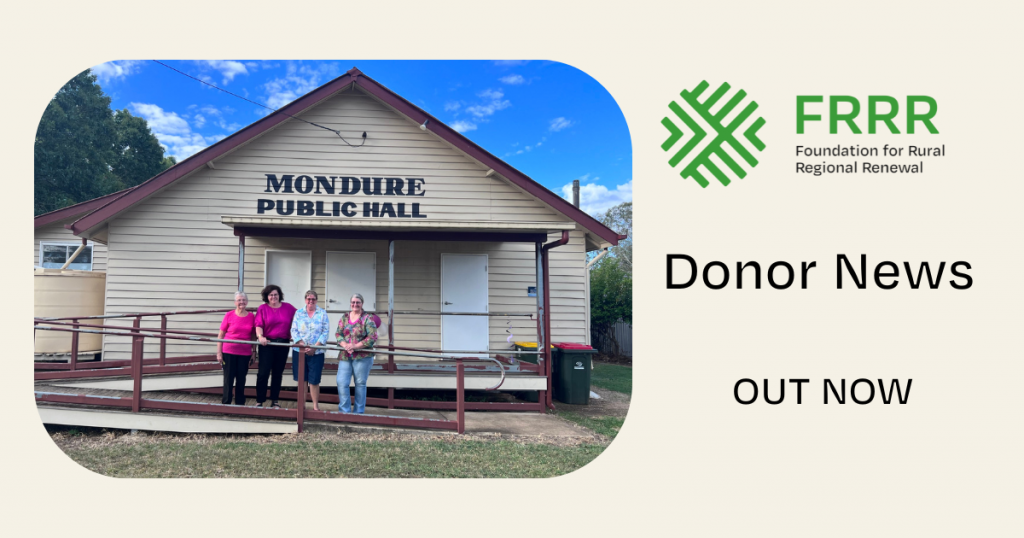Foundation for Rural & Regional Renewal (FRRR)
Following the February 2022 floods and the devastation experienced by community members within and surrounding Kin Kin, in southern Queensland, the Kin Kin Community Group (KKCG) shifted its focus towards future planning and the inevitable impacts of another natural disaster on their community. They aim to be better prepared with improved emergency systems to enable their people to operate more efficiently and effectively.
Kin Kin is a secluded southern Queensland hinterland community situated in the Noosa Council area, near its boundary with the Gympie Council. The town has very limited essential services, with only a single general store and café. The February 2022 floods took the town by surprise and left the community fending for themselves. There was no community-friendly meeting place or emergency response centre and the community was cut off by floodwaters for days. No one could enter or leave except by a helicopter from the oval. Food supplies depleted rapidly and communication was hampered, leaving the community in the dark about the ongoing situation. For four days there was limited telecommunication, making the community members feel even more isolated.
KKCG is dedicated to representing and promoting the Kin Kin community, and it was to this organisation that the community turned during their time of distress. The Group operates on behalf of the community, seeking opportunities, positive change and growth for its people. The volunteers are doing all that they can to ensure the community is prepared and supported for the future.
The effects of the 2022 flood events underscored the need for an Emergency Response hub, a place where volunteers and community can gather, to connect, communicate and plan together. The situation also highlighted the scarcity of resources available to support volunteers, including drinking water and first aid equipment. It emphasised the community’s risk areas and disadvantages, illustrating the need for better preparedness in the future.
Fortunately, the KKCG received a grant of $25,000 from the Rebuilding Futures program, funded by the Suncorp Group. This enabled the KKCG to purchase equipment and carry out activities to enhance the community’s safety, connection, resilience and wellbeing. This includes establishing a community hub that is publicly accessible at all times, including during natural disasters, and serves to provide comfort, connection, safety and distribution of essential resources within the community.
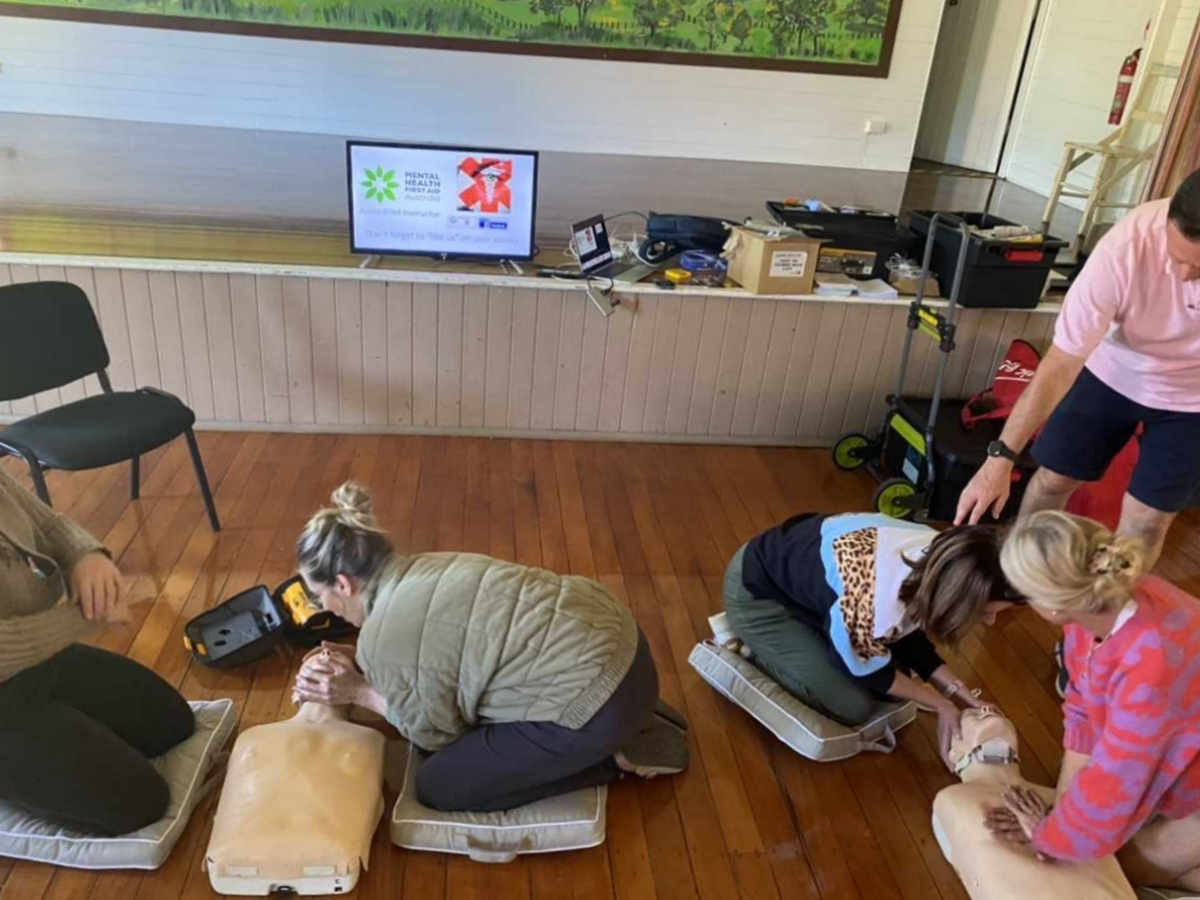
Specifically, the funds went toward essential office equipment such as computers, phones, an air conditioner, a printer, WiFi, first aid kit, a defibrillator, an emergency water supply and a community noticeboard. These resources aid in improving communication and growth within the community. The notice board displays disaster information and preparedness material from the Council and the Queensland Government, designed to better inform the community about disaster preparedness strategies. Furniture was also purchased, to make the space usable for community workshops and events that foster wellbeing and community connection. A recent example of such an event was a free first aid training day hosted by the KKCG. This workshop equipped volunteers with the skills to use the new first aid equipment and defibrillator in case of an emergency.
To combat volunteer fatigue and acknowledge the efforts of the Kin Kin volunteers, a ‘Volunteer Care Program’ was established. This program involves a monthly wellbeing initiative, allowing volunteers and community members to come together and connect. It bolsters the resilience and spirit of the community, fostering a sense of belonging and readiness to support others in times of need. The Community Hub is now equipped to meet the needs of the community in times of distress, with essential community resources and communication strategies focussed on supporting the overall health and wellbeing of the community. The hub, and volunteers who dedicate their time there, ensure that the local people, environment, culture and celebrations are embraced, fostering goodwill and prosperity. Indeed, it is the people and volunteers who have made Kin Kin an even more appealing and positive place to live.
The work of the Wardell Community Organised Resilience Effort (CORE) is an example of how a small town can rally in the face of a natural disaster and be ready for disasters to come. Most days, Wardell is an idyllic spot to live. Lush, green and quiet on the banks of the Richmond River in the Northern Rivers region of NSW. But in 2022, floods devastated the town and others nearby. Wardell had never flooded before, and no one was prepared.
Wardell CORE was set up as a resource centre for emergency donations. Bedding, blankets, clothes, food, medical supplies, water, torches, batteries and tents were all gratefully received. The need was immense. Two years on, Wardell CORE’s primary purpose is still helping affected people. Some are still homeless and many struggle with mental health issues, including PTSD. Their other main aim is to make sure the community is never impacted in the same way again.
Planning for the way forward
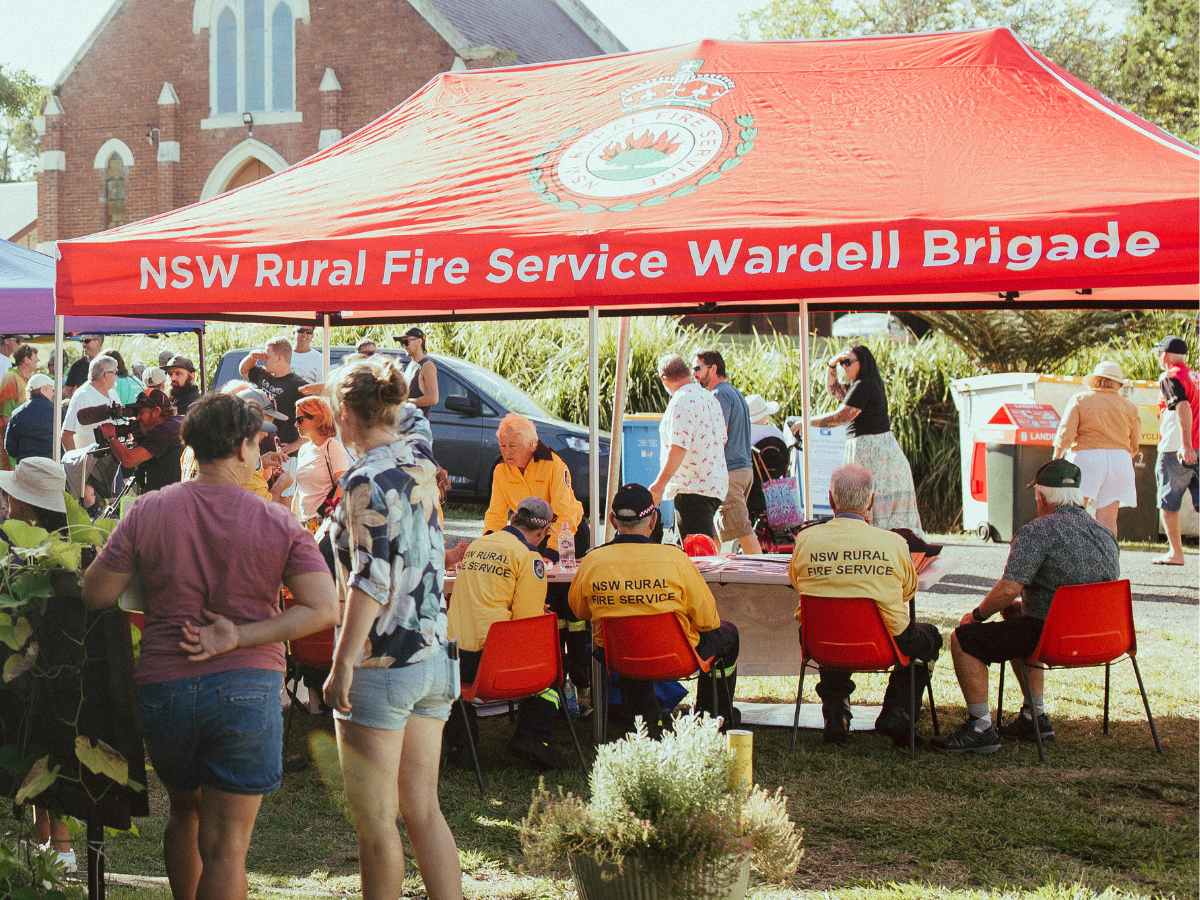
During the 2022 floods, mobile and internet telecommunications were impacted, meaning Wardell and the surrounding communities had limited or no communication in many areas until power could be restored or services fixed. Having no communications during a disaster created all kinds of problems – the emergency services people couldn’t share vital information, residents were cut off from family and friends, and there were any number of complexities around ongoing recovery.
After the flood receded, Wardell CORE immediately started planning for the next one, and detailed planning identified a need for a way for the community to stay informed, given the power outage lasted for two weeks or more. CB radio was the solution. They received a $10,000 grant from FRRR through Telstra’s Connected Communities program that funded the purchase of 10 hand-held devices and two base stations, as well as funds left over to support the community with the appropriate training. Through additional fundraising, they were able to install a relay station that helps to extend the signal as far as possible to provide radio reception throughout town and with the nearby communities of Woodburn and Coraki up-river, and Ballina down-river.
Where to next?
The organisation plans to distribute more radios throughout the region to anticipate flood events as widely and comprehensively as possible. Another resilience move they made was installing a Starlink service that uses a network of satellites to provide internet coverage, and installing onsite battery storage so that they will have internet in the event of future power outages.
The team behind Wardell CORE recognises that locals in the region experience high levels of anxiety about weather events, but the low level of digital literacy in the community is a real barrier to disaster preparedness. To resolve this, they’re looking at establishing a program that teaches people how to access and interpret weather apps and other related platforms.
A spokesperson for Wardell CORE explained the impact of the grant they received.
“Without the FRRR grant from Telstra’s Connected Communities program, we would never have been able to put our disaster preparation plans into action. The lessons learned from the 2022 floods meant we knew what technology we needed and where it should be located. But our reliance on small donations meant we could never have afforded it. Now we have the communications we need to feel confident about our ability to protect our people, physically and mentally, from any flood events in the future.”
$20,000 and $50,000 grants to strengthen networks and capabilities
FRRR is encouraging community organisations in agriculture-dependent parts of Australia to apply for the latest round of Small Network Grants for initiatives that build community preparedness and resilience to future drought.
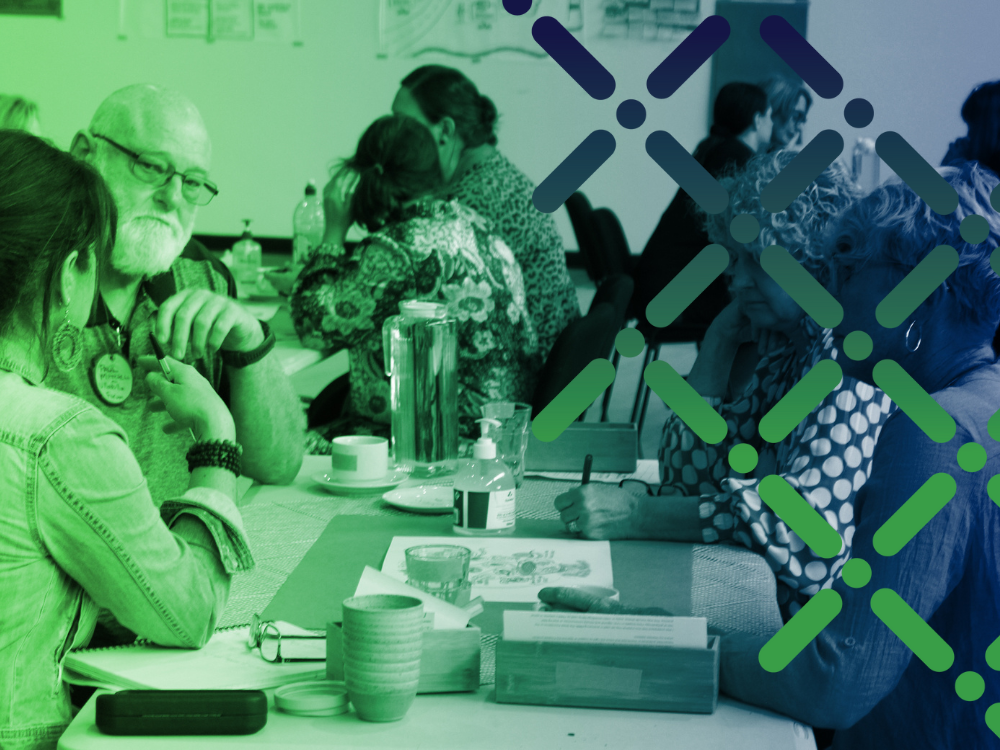
The Small Network Grants program is supported by the Australian Government’s Future Drought Fund through the Helping Regional Communities Prepare for Drought Initiative.
Grants are available through two Streams of funding for simple, one-off, or seed-type initiatives designed to strengthen local networks and capabilities of remote, rural or regional communities. Stream 1 offers grants up to $20,000 to all agriculture-dependent remote, rural or regional areas (except Stream 2 locations). Stream 1 has an indicative funding pool of $1,175,900[i]. Stream 2 grants of up to $50,000 are available for groups in the NSW Far West, NT Tablelands, NT Arid Lands, Northern Queensland Dry Tropics and WA Great Southern. An indicative funding pool of $1,296,350 is available for Stream 2[ii].
Nina O’Brien, FRRR’s Disaster Resilience and Recovery Lead, said preparing for the inevitable dry times ahead is critical, particularly for Australia’s agriculture-dependent regions.
“Our Small Network Grants program empowers local organisations to strengthen the social fabric of their town or locality by identifying and acting on their region’s drought preparedness priorities, at a grassroots level, in ways that best suit their communities.
“We look forward to seeing projects that will help community groups be better connected, informed, and resourced in the next drought,” Ms O’Brien said.
The Small Network Grants program can fund projects that fit into one of these five categories:
- Networks: Initiatives to strengthen the capacity, capability, and coordination of professional, social or community networks
- Community Events: Field days, conferences, forums, summits, and seminars that facilitate professional, social and community connection to build understanding of drought and climate change associated risks.
- Training: Initiatives to improve skills and capacity in community risk management, planning and project delivery in relation to drought.
- Community Infrastructure: Small scale community infrastructure projects to improve connectedness, wellbeing, and facilities.
- Development and Learning: Initiatives to facilitate professional, personal and leadership related development and learning to support drought preparation.
Applications are open now and close 26 March 2024, with recipients announced in June 2024.
Potential applicants are invited to watch this recorded webinar to learn more about the program and the eligibility requirements:
For more information, including the list of priority LGAs, and to apply, visit: https://frrr.org.au/small-networks-grants.
[i] Stream 1 – All LGA’s in an agriculture-dependent regional, rural or remote location (except Stream 2 locations). Priority will be given to locations where previous Helping Regional Communities Prepare for Drought Initiative activity has not been undertaken. An indicative funding pool of $1,175,954 is available for Stream 1. Applications up to $20,000 will be accepted.
[ii] Stream 2 – All LGAs from NSW Far West, NT Tablelands, NT Arid Lands, Northern QLD Dry Tropics and WA Great Southern regions only. An indicative funding pool of $1,296,352 is available for Stream 2. Applications up to $50,000 will be accepted.
56 projects funded thanks to the Future Drought Fund
FRRR has awarded $3.65 million in grants to 11 agriculture-dependent regions across Australia, for projects that will better prepare their communities for the impacts of drought and a changing climate.
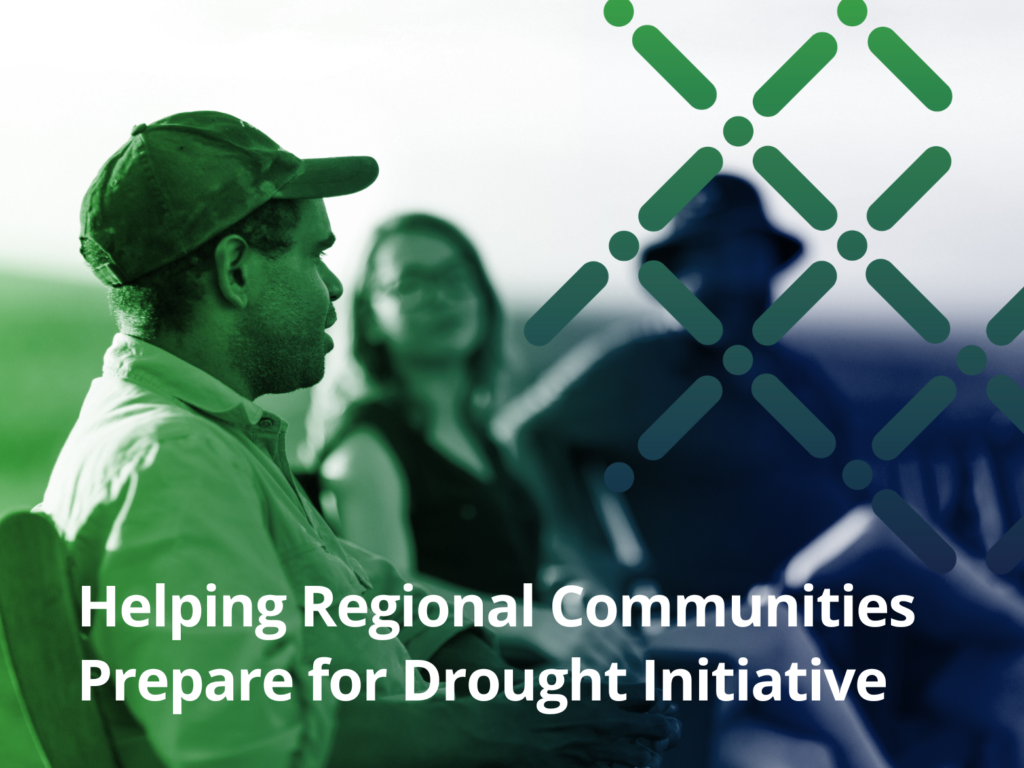
The $3,654,124 in grants is funded through the Australian Government’s Future Drought Fund, and delivered as part of the Helping Regional Communities Prepare for Drought Initiative’s Community Impact Program. To date, $9,115,583 in grants has been awarded to 27 agriculture-dependent regions, through the Program.
Delivered in partnership with ARLF, the Program aims to strengthen the ability of agriculture-dependent communities to work together to prepare for future drought or other disaster.
Nina O’Brien, Disaster Resilience and Recovery Lead for FRRR, said that the collaborative nature of the Community Impact Program means locals in each region have come together to identify and act on their communities’ drought preparedness priorities, at a grassroots level.
“The beauty of this program is that it’s so flexible. It can support events, initiatives, training and even small-scale infrastructure. But at their core, each project is about fostering the growth of stronger networks to encourage shared learning and more collaboration. We’re already seeing that happen among the program facilitators, who are leading by example, having established a community of practice, and mentoring one another across the regions.
“We recognise that co-design in each region has taken significant effort and we particularly thank the Community Partner Lead Organisations for stepping up and taking the lead in bringing everyone together. It’s been wonderful to be able to harness local knowledge and expertise and to have a cross-section of the community collaborate and create solutions. We know that these projects will strengthen the networks, support, engagement and wellbeing of people across their region.
“We look forward to seeing the continued growth of these networks and to seeing the impacts of these projects as they roll out over the next two years,” Ms O’Brien said.
Funded projects include a youth community hub and film festival on Mitakoodi Country, Cloncurry in Queensland. The Mitakoodi Community and Housing Aboriginal Corporation will use a $76,809 grant to develop the hub and festival, which will build a depth of social connection, a shared sense of purpose, and longer-term community belonging that locals can draw upon in future drought.
In Boyup Brook, Western Australia, Blackwood Basin Group Incorporated has been awarded a $40,730 grant to run a series of land management workshops, as well as produce written resources and provide accidental counselling. These capacity building activities will provide local people and communities with opportunities to develop the skills and knowledge to face the unique challenges caused by drought.
As part of the program, each region will also access tailored leadership development activities, delivered by ARLF.
ARLF Chief Executive, Matt Linnegar, says the leadership development supports the delivery of local projects and yields long-term benefits for the regions.
“We know that a multimodal approach of leadership development increases the impact the investments have in each region. In addition to the project funding, these leadership development activities build social capital required to support the project and people in each region. We get to connect local networks, create a deeper sense of shared purpose and develop capability that helps people to take action and address challenges and make the most of opportunities.”
Participants also gain access to the wider alumni network of the ARLF. “It’s these connections that prove invaluable to people. When they’re stuck, there’s someone to ask for advice,” Mr Linnegar said.
Other elements of the Future Drought Fund’s Helping Regional Communities Prepare for Drought Initiative are also underway, including a Mentoring program and an online network connecting community members involved in projects in each of the regions, both led by ARLF.
FRRR has also launched a portal providing access to experts to support delivery of their projects, if local expertise isn’t available. A small grants funding round will also open before the end of the year to support projects in areas not covered by the Community Impact Program.
Learn more about the Helping Regional Communities Prepare for Drought Initiative at www.frrr.org.au/drought-preparedness.
The full list of grant recipients and their projects are below.
| Organisation | Project | Location | Grant | |||
|---|---|---|---|---|---|---|
| New South Wales: Region 05 Northern Tablelands | ||||||
| Glenrac Incorporated | Community Partner Lead Organisation (CPLO): Region 05 Strengthen drought preparedness and drive local action in the Northern Tablelands region through the coordination of Community Impact Program activities and evaluation administration. | Northern Tablelands NSW Region | $30,146 | |||
| Glenrac Incorporated | Growing Social Capital, Glen Innes Enhance awareness of and attitude toward drought preparedness and build local leadership, networks and social support through a diverse series of community events, activities and delivery partners. | Glen Innes | $70,508 | |||
| Gwymac Incorporated | Connecting our Community for Resilience in Tough Times Enhance awareness of and attitudes toward drought preparedness through building local leadership, networks and social support through a series of collaborative events. | Inverell | $51,290 | |||
| Southern New England Landcare Ltd | SNEL HELP – Preparing Communities for Drought Increase the reach and activities of community leaders, mentors, networks and organisations driving action on drought resilience through the delivery of a series of community activities and events that will share information on the local impacts of drought, drought preparation activities and strengthen local connections, networks and relationships. | Armidale, Inverell, Uralla and Walcha | $62,214 | |||
| Granite Borders Landcare Committee Incorporated | Drought Community Impact Program Enable communities to identify and adopt innovative and transformative ways to build drought resilience through a series of collaborative workshops targeting innovation in drought preparation information and knowledge sharing. | Tenterfield | $70,936 | |||
| Queensland: Region 07 South-West | ||||||
| Southern Queensland Natural Resources Management Ltd | Community Partner Lead Organisation (CPLO): Region 07 Strengthen drought preparedness and drive local action in the South-West region through the coordination of Community Impact Program activities and evaluation administration. | South-West QLD Region | $20,500 | |||
| Thallon Progress Association Inc | PODDS 4 Thallon & Bollon (Place of Diversity & Development) Increase the reach and activities of community leaders, mentors, networks and organisations driving action on drought resilience through the development of shared workspaces in Thallon and Bollon. | Thallon and Bollon, Balonne Shire | $126,800 | |||
| Wyandra and District Progress and Recreation Association Inc | Wyandra & Surrounds Drought Resilience Leadership Network – Empower Paroo & Murweh Increase the reach and activities of community leaders, mentors, networks and organisations driving action on drought resilience across Paroo and Murweh through the delivery of community events, minor community infrastructure upgrades, leadership network establishment and connection to local support services. | Wyandra, Cunnamulla, Charleville | $83,615 | |||
| Queensland: Region 10 North-West | ||||||
| Southern Gulf NRM Ltd | Community Partner Lead Organisation (CPLO): Region 10 Strengthen drought preparedness and drive local action in the North-West region through the coordination of Community Impact Program activities and evaluation administration. | Queensland North-West Region | $33,007 | |||
| Southern Gulf NRM Ltd | Proactively Improving Mental Health Preparedness in Northwest QLD Enable capacity building activities where local people and communities have opportunities to develop the skills and knowledge to face the unique challenges caused by drought through the delivery of mental health first aid training across the region. | Cloncurry, Julia Creek, Richmond, Hughenden, Normanton, Burketown, Mount Isa | $66,209 | |||
| Southern Gulf NRM Ltd | Community Group Development Facilitator for Northwest QLD Improve capability, coordination and collaboration between networks, other community organisations and sectors that can be drawn upon in future drought through delivery of governance, volunteer management, communications and project management training. | Mount Isa, Cloncurry, McKinlay, Richmond, Flinders, Burke, Carpentaria | $148,538 | |||
| Mitakoodi Community and Housing Aboriginal Corporation | The Cloncurry Community Hub and Film Festival Build a depth of social connection, a shared sense of purpose and longer-term community belonging that can be drawn upon in future drought through the development of a youth community hub and film festival. | Mitakoodi Country,Cloncurry | $76,809 | |||
| Western Australia: Region 21 South-West | ||||||
| South West Catchments Council | Community Partner Lead Organisation (CPLO): Region 21 Strengthen drought preparedness and drive local action in the South-West region through the coordination of Community Impact Program activities and evaluation administration. | WA South-West Region | $23,768 | |||
| Warren Catchments Council | Green Spaces Counter the Blues Enable capacity building activities where local people and communities have opportunities to develop the skills and knowledge to face the unique challenges caused by drought through a coordinated series of water efficient landscaping / gardening workshops. | Shire of Manjimup | $75,661 | |||
| Southern Forest Arts Inc | Rivers of Thirst Build depth of social connection, awareness of and constructive attitudes to drought preparedness at the community level through community development of seven public artworks across towns in the region. | Manjimup, Boyup Brook, Nannup, Bridgetown-Greenbushes | $49,908 | |||
| South West Catchments Council | Community Resilience Network Improve the capability, coordination and collaboration between networks, other community organisations and sectors that can be drawn upon in future drought through the establishment of a Community Resilience Network of local groups in Community Resource Centres. | Manjimup, Boyup Brook, Bridgetown-Greenbushes, Donnybrook-Balingup, Augusta- Margaret River, Harvey, Dardanup, Busselton | $86,935 | |||
| Blackwood Basin Group Incorporated | Boyup Brook Community Drought Preparedness Enable capacity building activities where local people and communities have opportunities to develop the skills and knowledge to face the unique challenges caused by drought, through a series of land management workshops, production of written resources and accidental counselling training. | Boyup Brook | $40,730 | |||
| Goomburrup Aboriginal Corporation | Ni! Boodja Waangkiny (Noongar Seasonal Calendar) Enable depth of social and cultural connection, awareness of and constructive attitudes to drought preparedness at the community level through the development of a place-based, locally developed Noongar seasonal calendar that captures the knowledge and resilience of the people and culture with storytelling. | Bunbury | $66,000 | |||
| South Australia: Region 24 Northern and Yorke | ||||||
| Regional Development Australia Barossa Gawler Light Adelaide Plains Incorporated | Community Partner Lead Organisation (CPLO): Region 24 Strengthen drought preparedness and drive local action in the Northern and Yorke region through the coordination of Community Impact Program activities and evaluation administration. | SA Northern and Yorke Region | $56,893 | |||
| Lochiel Progress Association | Diner en Rose Build depth of social connection, a shared sense of purpose, and longer-term community belonging that can be drawn upon in future drought through a community event celebrating the local landscape. | Lochiel– Pink Lake (Wakefield Regional Council) | $21,170 | |||
| Wirraminna Care | Scone / Coffee Times Bringing Neighbourhoods Together to Share Socially Build depth of social connection, a shared sense of purpose and longer-term community belonging that can be drawn upon in future drought by addressing social isolation within the community. | Williamstown, Eden Valley | $7,000 | |||
| WoTL Ltd | Managing Yourself and Your Business Through Drought and Other Disruption Enable capacity building activities where local people and communities have opportunities to develop the skills and knowledge to face the unique challenges caused by drought through leadership workshops specifically designed for women. | Riverton, Clare, Kadina | $67,000 | |||
| Two Wells Regional Action Team | Drought Resilient Greening for Community Wellbeing Enable a change in awareness of and attitudes to drought preparedness at the community level and enhance the public good by planting drought-tolerant trees at three entrances to the township of Two Wells. | Two Wells | $3,000 | |||
| Barossa Improved Grazing Group Incorporated | Building Local Human Capacity to Support Drought Preparedness Across the Barossa Generations and Community Enable capacity building activities where local people and communities have opportunities to develop the skills and knowledge to face the unique challenges caused by drought through supporting and training young farmers. | Barossa, Light, Mid Murray | $55,000 | |||
| Victoria: Region 27 Mallee | ||||||
| Mallee Sustainable Farming Inc | Community Partner Lead Organisation (CPLO): Region 27 Strengthen drought preparedness and drive local action in the Mallee region through the coordination of Community Impact Program activities and evaluation administration. | VIC Mallee Region | $76,818 | |||
| First People of the Millewa-Mallee Aboriginal Corporation | Community Impact Program – Mallee Region Build depth of social connection and increase skills, knowledge and understanding of the risks posed by drought and climate change through land management training and mentorship of young First Nations people. | Neds Corner Station, Mildura | $41,200 | |||
| Birchip Cropping Group Inc | Mallee BCG Young Farmer Network Enable capacity building activities where young farmers have opportunities to develop the skills and knowledge to face the unique challenges caused by drought in remote, rural, and regional Australia through the growth of a Young Farmers Network. | Quambatook, Birchip, Manangatang | $32,960 | |||
| Mallee Sustainable Farming Inc | The Mallee Matters Build awareness of and changed attitudes to drought preparedness at the community level through the production of short videos that showcase local resilience. | Northern Mallee areas | $65,920 | |||
| Food Next Door Cooperative | Food Next Door Co-op: Sustainable CALD Market Gardening Build the capacity of local people and communities to develop the skills and knowledge to face the unique challenges caused by drought in remote, rural and regional Australia through irrigation management training for CALD communities. | Mildura, Merbein, Nichols Point and Red Cliffs | $56,856 | |||
| Rural Business and Community Limited | Shared Shop Increase economic diversification in an agriculture-dependent community through the establishment of a cooperative ‘shared shop’ for micro businesses in Donald. | Donald | $32,960 | |||
| Rural Financial Counselling Service Victoria Wimmera South West Inc | Resilient Small Businesses Deliver capacity building activities where local people and communities have opportunities to develop the skills and knowledge to face the unique challenges caused by drought in remote, rural and regional Australia through the establishment of a small business resilience network targeted at new, young and Indigenous business owners. | Mildura | $41,200 | |||
| Millewa Advisory Group | Millewa SHIM Shed Build depth of social connection, a shared sense of purpose, and longer-term community belonging that can be drawn upon in future droughts through the establishment of a community gathering space in the Millewa district. | Millewa | $17,304 | |||
| Victoria: Region 29 Wimmera Southern Mallee | ||||||
| Wimmera Southern Mallee Development Limited | Community Partner Lead Organisation (CPLO): Region 29 Strengthen drought preparedness and drive local action in the Wimmera Southern Mallee region through the coordination of Community Impact Program activities and evaluation administration. | VIC Wimmera Southern Mallee Region | $44,228 | |||
| Wimmera Southern Mallee Development Limited | Community Connector Program Improve the capability, coordination and collaboration between networks, other community organisations and sectors through service mapping, gap analysis, resource development and network capability building and service promotion before the next drought hits. | Whole of WSM | $133,700 | |||
| Wimmera Southern Mallee Development Limited (Migrant Settlement Services) | Migrant Youth Support Build depth of social connection, shared cross cultural drought knowledge and longer-term community belonging that can be drawn upon in future drought through a drought resilience building program for young migrants. | Horsham, Nhill | $50,000 | |||
| Wimmera Catchment Authority | Ranch Billabong Build depth of social connection, a shared sense of purpose and longer-term community belonging through the revitalisation, and increased visitation of a culturally significant site by the local First Nations and wider community. | Barengi Gadjin Land Council | $40,000 | |||
| West Vic Business Incorporated | Community Placemaking Build depth of social connection, a shared sense of purpose and longer-term community belonging that can be drawn upon in future drought through capacity building activities where local people and communities have opportunities to develop the skills and knowledge to face the unique challenges caused by drought through the establishment of a Place-making network. | VIC Wimmera Southern Mallee Region | $46,393 | |||
| Victoria: Region 32 West Gippsland | ||||||
| Food & Fibre Gippsland Inc | Community Partner Lead Organisation (CPLO): Region 32 Strengthen drought preparedness and drive local action in the West Gippsland region through the coordination of Community Impact Program activities and evaluation administration. | VIC West Gippsland Region | $96,050 | |||
| Rural Financial Counselling Service Victoria - Gippsland Inc | Backbone Build awareness of and attitudes to drought preparedness at the community level by producing two drought resilience special editions of the Rural and Regional Backbone magazine. | Latrobe Valley, South Gippsland, Wellington, Bass Coast | $99,880 | |||
| Food & Fibre Gippsland Inc | Gated Framework – Community Build capability in community leaders, networks and organisations to undertake strategic drought resilience planning and future drought preparedness activities through the development of a templated drought preparedness framework. | Baw Baw, Latrobe Valley, South Gippsland, Wellington, Bass Coast | $109,978 | |||
| Gippsland Women's Health Inc | Gendered Violence Prevention – Active Bystander Training Develop skills, knowledge and capacity to face the unique challenges caused by drought through Active Bystander (Family Violence) training. | Baw Baw, Latrobe Valley, South Gippsland, Wellington, Bass Coast | $44,122 | |||
| Rural Financial Counselling Service Victoria - Gippsland Inc | ADAPT Increase the reach and activities of community leaders, mentors, networks and organisations driving action on drought resilience by subsidising the delivery of ADAPT wellness program including online training and ongoing mentoring supporting small to medium sized grassroots organisations to access informal wellness support mechanisms at a community level. | Baw Baw, Latrobe Valley, South Gippsland, Wellington, Bass Coast | $35,000 | |||
| Victoria: Region 33 Ovens Murray | ||||||
| AgBiz Assist Limited | Community Partner Lead Organisation (CPLO): Region 33 Strengthen drought preparedness and drive local action in the Ovens Murray region through the coordination of Community Impact Program activities and evaluation administration. | VIC Ovens Murray Region | $30,000 | |||
| Alpine Valleys Community Leadership Fund Ltd | Community Capacity Building Support capacity building activities where local people and communities have opportunities to develop the skills and knowledge to face the unique challenges caused by drought through a community leadership program. | Indigo Shire | $95,000 | |||
| Startup Shakeup Ltd | Digital Work Skills Build capacity of local people and communities to develop the skills and knowledge to face the unique challenges caused by drought through business digital skills training. | Indigo Shire and City of Wangaratta | $95,000 | |||
| AgBiz Assist Limited | Wellbeing and Social Connection Build capacity of local people and communities to develop the skills and knowledge to face the unique challenges caused by drought through mental health awareness and support activities and training. | Indigo Shire and City of Wangaratta | $170,328 | |||
| Tasmania: Region 34 North and North West | ||||||
| Rural Business Tasmania Inc | Community Partner Lead Organisation (CPLO): Region 34 Strengthen drought preparedness and drive local action in the North and North West region through the coordination of Community Impact Program activities and evaluation administration. | TAS North and North west Region | $47,000 | |||
| Southern Farming Systems Ltd | Empowering Rural Youth to Build Capacity in Tasmanian Rural Communities Build depth of social connection and increase skills, knowledge and understanding of the risks posed by drought and climate change through tailored drought related events for three distinctive climates in the region. | Scottsdale, Ulverstone, Campbell Town | $102,000 | |||
| Rural Business Tasmania Inc | Local Communities Volunteer Project Build depth of social connection, a shared sense of purpose and long-term community belonging that can be drawn upon in future drought by connecting volunteer-based community organisations with young people in the region. | Fingal, Deloraine, Scottsdale, Whitemark | $114,084 | |||
| Tasmanian Leaders | Drought Resilient Impact Preparedness (DRIP) Build capacity of local people and communities to develop the skills and knowledge to face the unique challenges caused by drought through a targeted leadership program. | TAS North and North West Region | $99,709 | |||
| RANT Arts | Close Up: Drought Preparedness Build awareness of and attitudes to drought preparedness at the community level through the creation of accessible educational videos. | Devonport, Burnie, Latrobe, Meander Valley | $31,059 | |||
| Tasmania: Region 35 South Region | ||||||
| University of Tasmania | Community Partner Lead Organisation (CPLO): Region 35 Strengthen drought preparedness and drive local action in the South region through the coordination of Community Impact Program activities and evaluation administration. | TAS South Region | $38,778 | |||
| Rural Business Tasmania Inc | Local Community Volunteer Project Build a depth of social connection, a shared sense of purpose and longer-term community belonging that can be drawn upon in future drought by connecting volunteer-based community organisations with young people in the region. | TAS South Region | $100,000 | |||
| Southern Regional Natural Resource Management Association | Igniting Community Build culturally informed drought preparedness and social connection through a shared sense of purpose, which can be drawn upon in future drought through a series of cultural burn workshops. | Southern Tasmania | $100,000 | |||
| Reconciliation Council of Tasmania Limited | Youth Mob Build depth of social connection, awareness of and attitudes to drought preparedness at the community level by developing land management skills of young First Nations people. | Clarence and Sorell Municipality | $82,960 | |||
| Tasmanian Small Business Council Inc | Tasmania Small Business Community Resilience Project Build the capacity of local people and small business to develop the skills and knowledge to face the unique challenges caused by drought through a series of business workshops and field trips. | Dunalley, Triabunna, Swansea | $90,000 | |||
By Nina O’Brien, Disaster Resilience and Recovery Lead
The call to action at this year’s Australian Disaster Resilience Conference is deeply apparent and has been reflected in most of the presentations, including my own – we must expand our understanding, balance investment, and elevate the voice of community, particularly First Nations people, to reduce the risks and impacts of a changing climate, and build collective resilience towards the increasing severity and frequency of disasters.
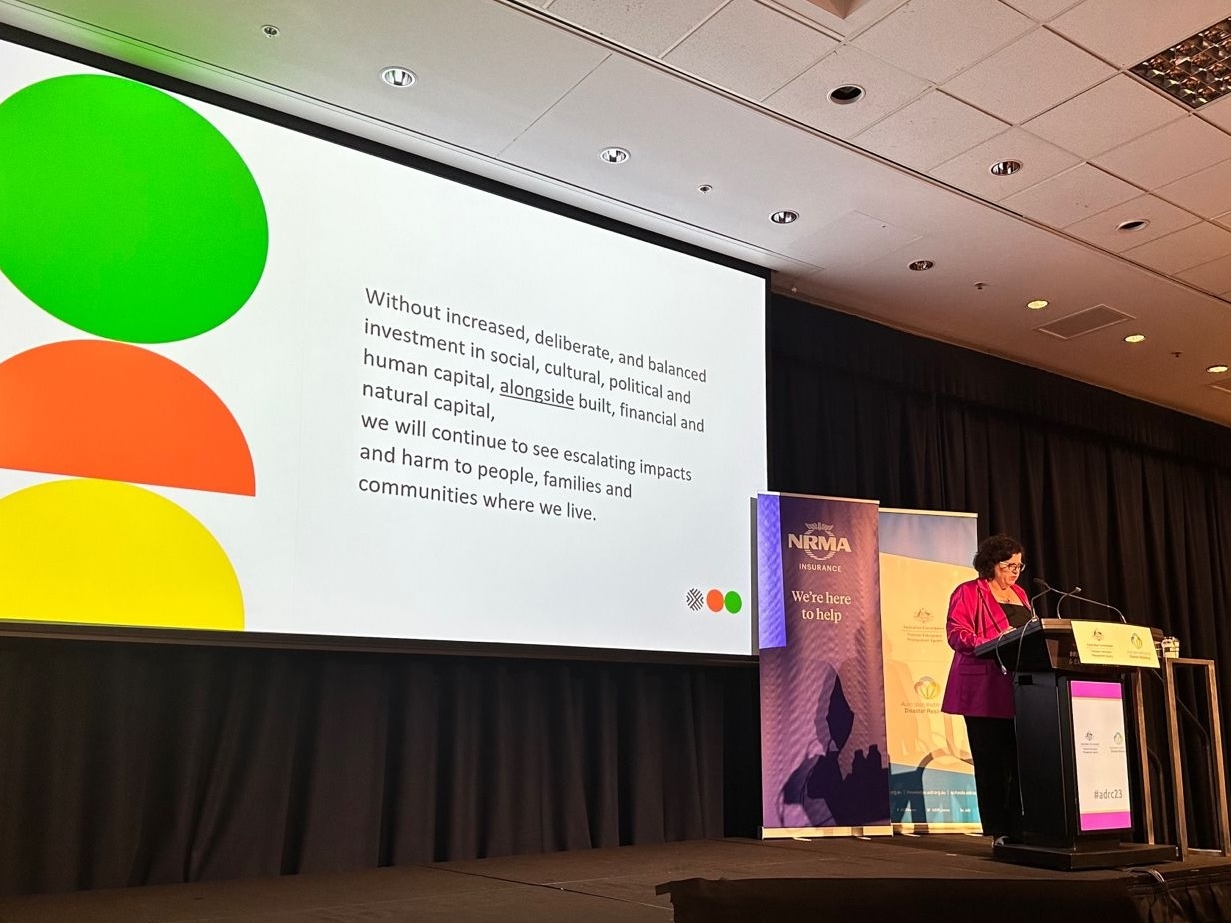
At FRRR, we are addressing this call to action by working deeply with local groups that are on the ground, working to enhance the preparedness and resilience of their remote, rural and regional communities. Programs like Disaster Resilient: Future Ready, as well as the thousands of grassroots, community-based projects we support through small grants like SRC Prepare and Recover , and others such as Rebuilding Futures, allow us to learn from local leaders about the needs and priorities of their communities, and how we can best support them to build local resilience and disaster recovery.
My presentation spoke of the importance of balanced investment in people and processes, not just products and ‘things’ across the entire disaster cycle, with a specific focus on preparedness. Social, cultural, political, and human capital are equally as vital as built, financial and natural capital in bolstering resilience. This approach takes a holistic view that acknowledges the interconnectedness of all these facets of community life.
This is why I advocate that we must shift our focus from (often) the disproportionate investing in products and things (hard infrastructure, as we often refer to it) to prioritising people and processes (or the soft infrastructure).
Ultimately, it is the people and processes that really make communities tick and make a difference in effective disaster response, recovery, and preparedness.
This is reinforced by the findings of ongoing research that FRRR has commissioned alongside our learning partner, University of Sydney.
“Working in a community led way to build local resilience means that local community members act as equal decision makers with a range of other stakeholders (local government, emergency services, service providers, business) to address issues which are priorities for that community. Rather than a top-down approach, where decisions are made outside a community or are made by government or other formal authorities, community led resilience building starts and continues with listening and collaborating on the priorities of community members. Genuine ownership by the local community requires their active involvement in all aspects of resilience building, not merely consultation.”
Howard, A., Rawsthorne, M. and Joseph, P. (2022) Critical Dimensions in Community Disaster Resilience [FactSheet], University of Sydney for the Foundation for Rural & Regional Renewal
The formal study has reinforced our anecdotal observations that when communities take the lead in driving resilience-building efforts, remarkable things happen. Whether tackling natural disasters like cyclones, bushfires, floods, or adapting to community shocks such as the loss of major services or industries, community-led initiatives tend to persist longer and have ongoing positive impacts. They foster local strengths that can adapt to a wide range of challenges over time.
This work provides an important formal evidence base for supporting grassroots not-for-profit organisations that are critical to nurturing the vitality of regional communities.
It also validates FRRR’s preferred approach of working alongside communities, mapping their assets and systems of interconnectivity, understanding their particular strengths and nuances, and viewing community life through resilience dimensions that help to identify and craft locally driven resilience initiatives.
Through diverse funding mechanisms that prioritise people and processes, we’ve seen tangible dividends in increased resilience. These include support for locally conceived projects and initiatives; building volunteer capacity and strengthening networks; resilience coaching, mentoring and support; strengthening internal organisational capacity; and fostering long-term project delivery capability through sustainable local partnerships.
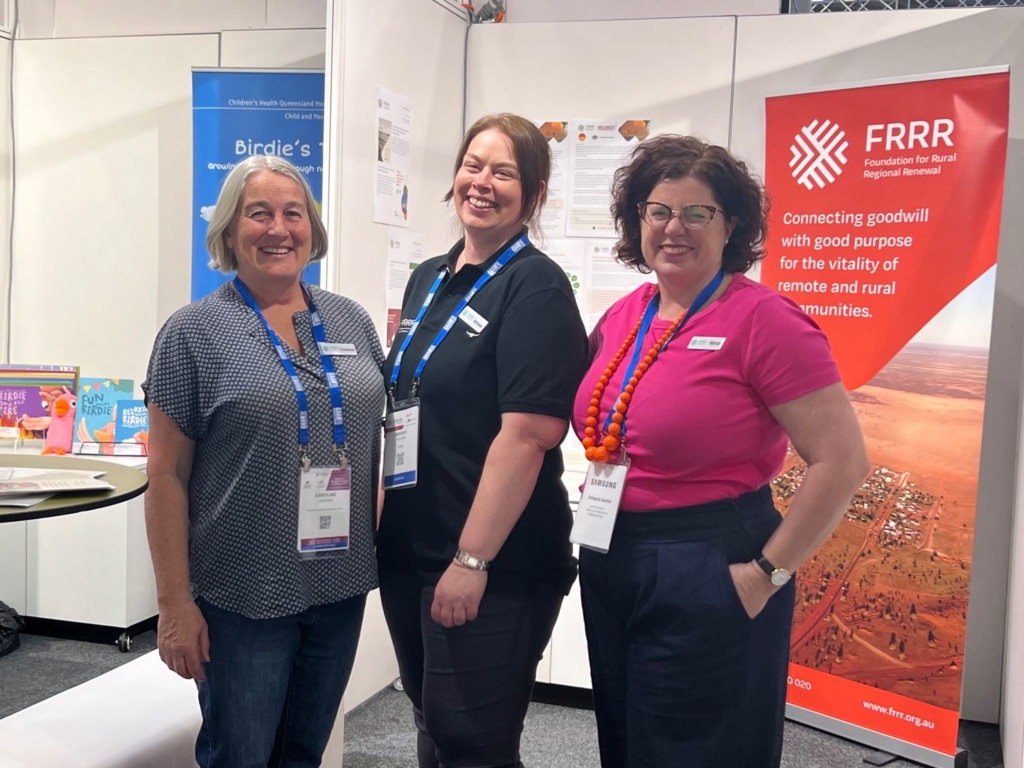
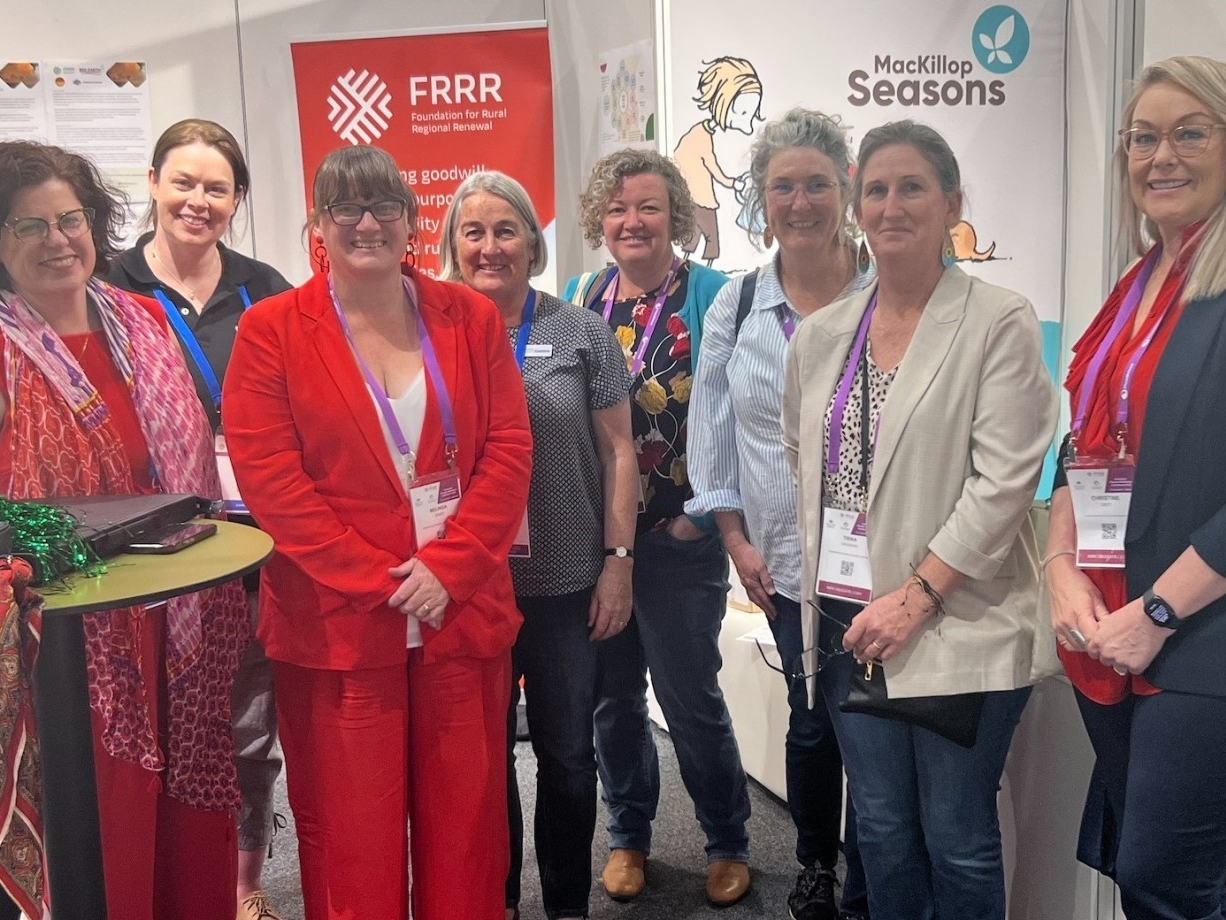
And as a side note from ADRC23; the feedback from communities is clear. They want flexible funding criteria, longer timelines, negotiated measures of success, simpler forms and reporting – and patience from funders. As a mechanism to deliver support to approximately 1000 small projects per year; with around half of those related to disaster impacts; FRRR is working hard to meet these requests with flexible guidelines, negotiated timelines where possible, agile timing, and a streamlined approach to applying and reporting.
Without deliberate, balanced investment in social, cultural, political and human capital, alongside traditional capital, the impacts and harm from disasters will continue to escalate in our communities. We need a systems-based lens that prioritises people and processes to meet future community needs and challenges effectively.
The long-term benefits of this shift are significant; capable local individuals, agile community-based networks, strong not-for-profit organisations and ultimately resilient remote, rural and regional communities become the norm. This paves the way for a future where communities can thrive, adapt and face the uncertainties of a changing climate, with resilience and hope.
FRRR Disaster Resilient: Future Ready Burnett Inland (Queensland)
The Foundation for Rural & Regional Renewal (FRRR) has recently commenced the implementation of its Disaster Resilient: Future Ready (DR:FR) initiative in communities and across the Burnett Inland in Queensland. FRRR is delivering this program through local partner Red Earth Community Foundation. The program is made possible through the financial support of the National Emergency Management Agency (NEMA) Preparing Australian Communities – Local Stream, and Minderoo Foundation.
FRRR is seeking proposals from experienced social impact evaluation providers to work with us to:
- Design a Monitoring Evaluation Learning (MEL) approach for the program; and
- Undertake a comprehensive evaluation to understand the outcomes from this investment and the contribution the program has made to disaster resilience in individual communities and across the region.
Supporting Documents
For full details of the evaluation scope and submission requirements please see below:
Request for Proposal – Disaster Resilient Future Ready Burnett Inland Evaluation (PDF)
All submissions must include a completed Budget Template (.docx).
Selection Criteria
- Demonstrated experience in social impact evaluation (as distinct from social research).
- Demonstrated understanding of the requirements, objectives, and motivation of the evaluation.
- Demonstrated knowledge of the program context, policy, purpose, and key stakeholders.
- Proposed evaluation methodology that meets the requirement and suitability of the program and community context.
- Evaluation outputs. Proposals that include a range of outputs including a combination of written reports, case studies, short videos, most significant change interviews, and infographics will be highly regarded.
- Demonstrated knowledge and experience working collaboratively with rural, regional, and remote communities.
- Alignment with FRRR values and aspirations.
- Evidence that relevant insurances, licences, policies, and procedures are in place and compliant with State or Commonwealth laws. Demonstrated health and safety measures including Working with Vulnerable Persons, Working with Children, Occupational Health, and Safety Policies as well as relevant insurances such as Public Liability and Professional Indemnity.
- Willingness to build capability within both FRRR and Red Earth team in the delivery of the project regarding evaluation methodology.
- Overall value for money.
Suitably qualified and experienced individuals or organisations must submit a proposal that includes:
Proposals should be no greater than 30 pages (including attachments).
Key Details
Closing date: Friday, 8 September 2023 at 5:00pm AEST.
Proposals must be lodged via c.larcher@frrr.org.au.
For enquiries or further information, please contact Caroline Larcher, Disaster Resilient: Future Ready Program Manager on 0492 370 586 or c.larcher@frrr.org.au.
Mission Australia has worked in partnership with Mid Coast 4 Kids to deliver ‘The Common Approach’ training to build capability for a whole of community response to child youth wellbeing in the Mid Coast region.
The Mid Coast was dramatically impacted by the South Eastern Australia floods in 2022. The townships of Taree, Wingham and Gloucester were inundated or compromised with flood waters and structural damage cutting communities off for long periods. There was flood damage to farm lands, residential housing areas and outlying communities. This disaster compounded significant stress that has been experienced in the communities for an extended period due to the impact of prolonged drought, COVID-19 and bushfires.
As a result, early childhood centres and schools reported increased anxiety and trauma-related behaviours in children and young people, and the service system was not coping, with allied health and other support services reporting wait times of more than 12 months.
‘The Common Approach’ has equipped a range of members of the Mid Coast community with the skills to have quality conversations and build resilience to respond to the wellbeing needs of children, young people and their families, now and into the future. In total, 228 people including community service, health and education professionals, community volunteers and parents were trained to have evidence based, holistic conversations with children and young people about all aspects of their wellbeing.
Participants report increased confidence in being able to support children and young people to identify strategies to improve individual wellbeing. “Through this intervention we have equipped our community to share responsibility for promoting and supporting the health and wellbeing of children and young people in our community, via evidence informed practice,” says Program Manager Bree Katsamangos.
“Additionally, practitioners will benefit from the opportunity to engage in a bi-monthly Community of Practice to support ongoing development and practice.”
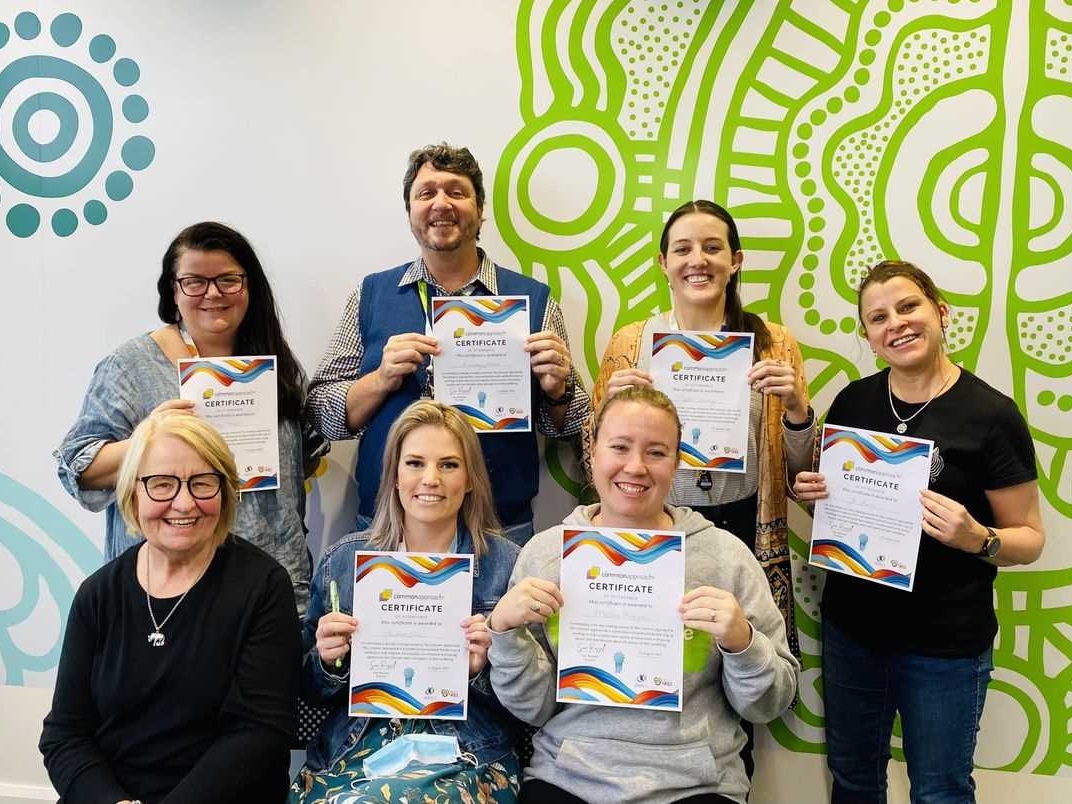
The Mooloolah Community Centre is the home and work hub of Mooloolah Valley Community Association Inc, located on the Sunshine Coast in Queensland. The Centre is run by a Management Committee of 10 volunteers from wide and varied backgrounds including finance, defence, nursing, social work, local government and administration, and there are a team of volunteers who support the Centre by doing tasks from garden maintenance to assisting in the Op Shop. Everyone at the Centre works for the benefit of the Mooloolah community, and the positive flow-on effects are felt throughout the Mooloolah Valley postcode area.
In February 2022, the flooding closed all roads into the town, cutting it off for four days and causing a loss of power across the area. The lack of a reliable power source during this disaster revealed critical vulnerabilities in the community for being able to charge phones and stay in touch with loved ones. Additionally there was no hot water and the Community Centre couldn’t open.
After receiving $25,000 in Round 2 of the Rebuilding Futures program, funded by the Suncorp Group, the Community Centre has now securely installed a solar battery pack ready for any future disasters or power outages. The installation of the solar batteries has completed a significant preparedness project by this group, who over the last year, have added emergency lighting, directional emergency lighting and evacuation alarms so the community can be prepared and therefore more resilient in times of extreme weather events.
The Community Centre says it is ready to support the needs of the community in times of distress, including having the Op Shop open to allow people to obtain emergency clothes if required, and enabling the Welfare Officer to operate and offer vouchers for food and fuel. The website has been updated with a new ‘Community Resilience Service’ that promotes an offering of a place of refuge during disaster, including the basics like a hot drink, charging phones, using the internet and much more.
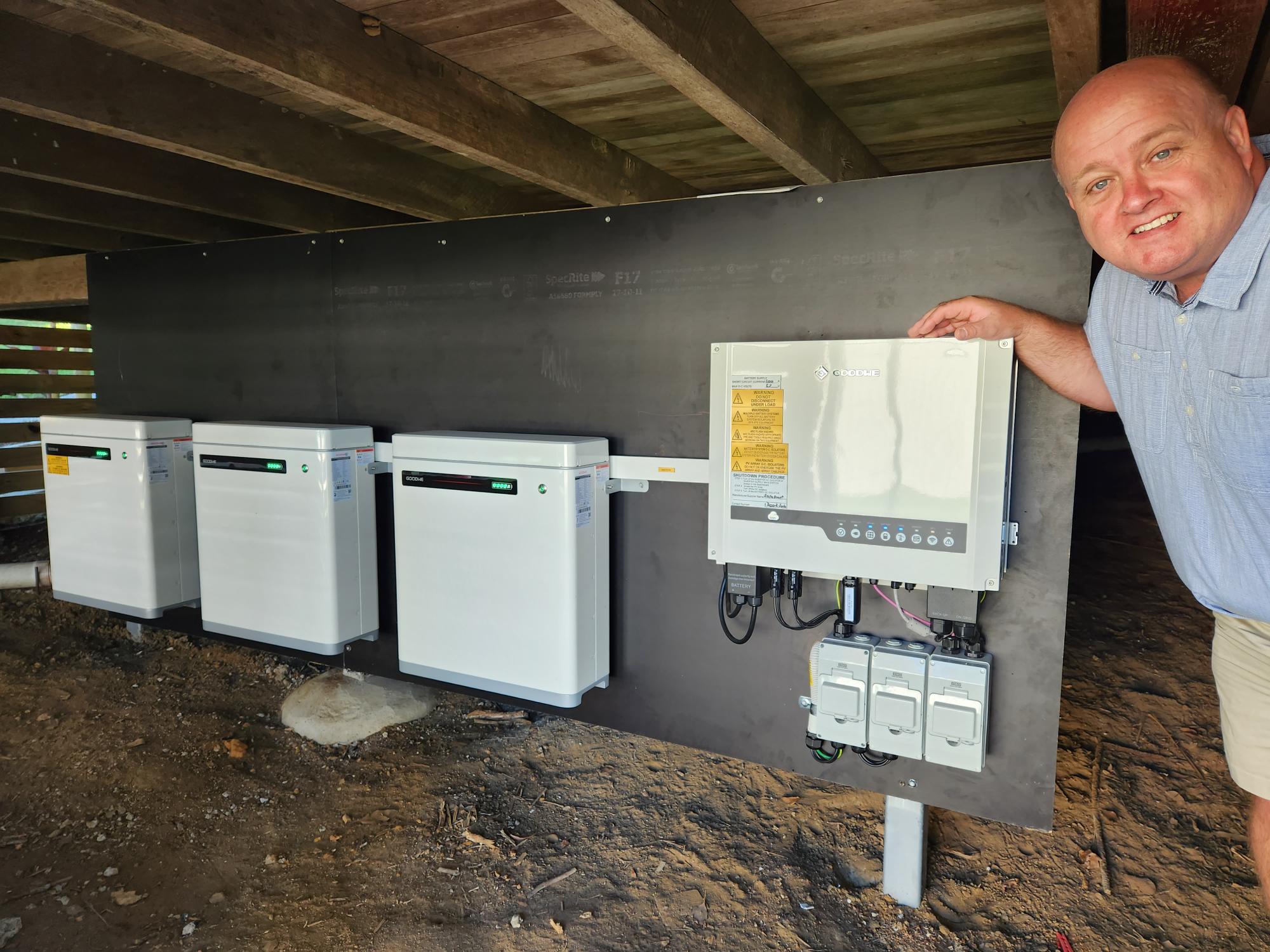
Mooloolah Valley Community Association Inc’s Events & Grants Officer, Jason Carroll
Grants up to $20,000 available for recovery projects
Local community groups and not-for-profits in rural Victorian communities impacted by 2022-23 floods are encouraged to apply for grants up to $20,000 for projects that will support their community’s recovery.
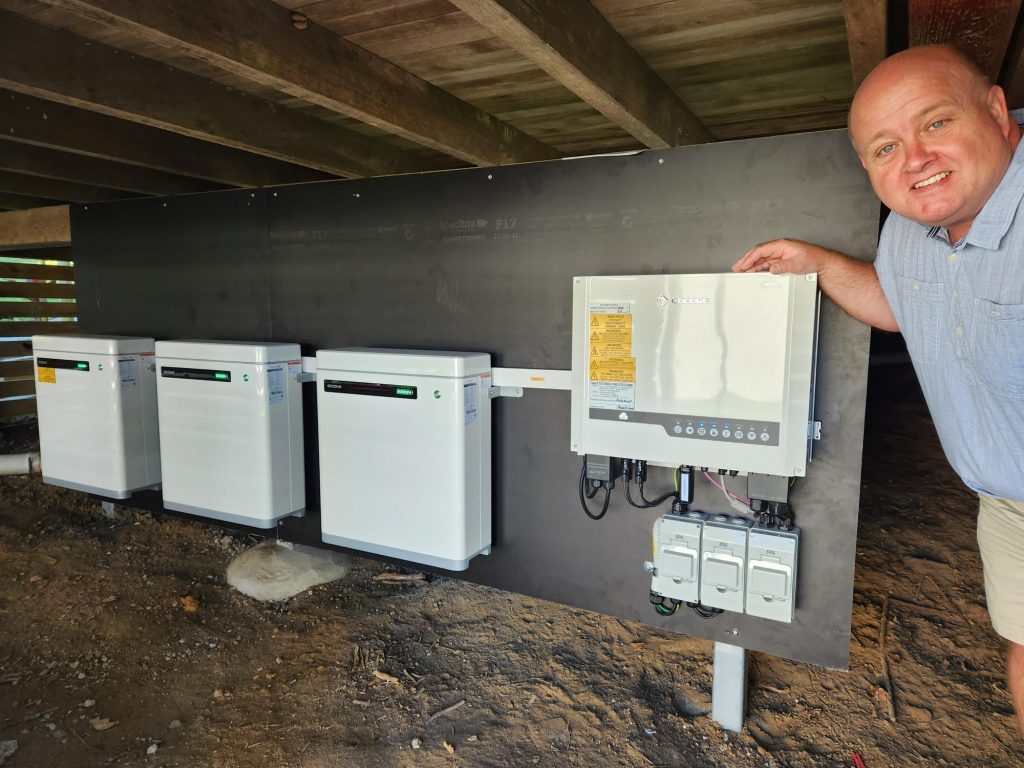
In partnership with Suncorp and AAMI, FRRR is offering $300,000 for initiatives that build resilience and support medium to long-term recovery of communities affected by the flooding and storms that occurred in specified LGA’s between 6 October 2022 and 13 January 2023.
Funded through the Rebuilding Futures program, these responsive grants are available for proactive initiatives that are community-led.
Nina O’Brien, FRRR’s Disaster Resilience & Recovery Lead, said that extreme weather events, like the flooding and storms experienced by rural Victorian regions late last year, affect every community member, especially those who are most vulnerable and rely on community organisations for support.
“Different groups within the community, such as those living with disability, homelessness or who speak English as a second language, will be impacted differently, and as such, will have their own needs in terms of building resilience and how they can prepare for future disaster events.
“We encourage community groups to be inclusive with their initiative ideas and consider how their project can support community members from all nationalities, socio-economic and cultural backgrounds.
“We also encourage community groups to think outside the box when it comes to infrastructure and equipment projects by considering resilient materials and harnessing clever use of design to decrease future impacts of natural disasters,” Ms O’Brien said.
Suncorp’s Group Executive People, Culture & Advocacy, Fiona Thompson, said that natural disasters, such as the Victorian floods, have devastating impacts that are complex, context-driven and long-lasting.
“This is the third disaster-affected region that we’ve supported through this program over the last couple of years, so we know the impacts in each place are different. One thing is always the same though; local people are best placed to know what the needs and priorities of their community, especially following a natural disaster event.
“Thanks to our partnership with FRRR, we’re pleased to be able to provide flexible funding that means communities can determine how best to address the medium to long-term recovery, resilience and preparedness needs and priorities for their region,” Ms Thompson said.
A Grantseeker Workshop, including a Q&A, on the Rebuilding Future’s grant program will be held online from 12 – 1pm AEST, Wednesday 7 June 2023. Register for the Grantseeker Workshop here.
Applications close 6 July 2023.
Previous projects funded through the Rebuilding Futures program include:
- During the floods in February 2022, Mooloolah Valley, QLD, experienced intermittent loss of power that impacted the community’s access to lighting, hot water and technology. To help the community prepare for future disaster events, the Mooloolah Valley Community Association Inc used a $25,000 grant to purchase and install three batteries that can be used to supply power to the region. The batteries are able to store energy from the Centre’s existing solar panels. The grant also funded fencing to ensure the new batteries are stored safely and securely. Thanks to the community’s resilience and preparedness, the batteries were able to keep the community’s power running during the two electricity outages that Mooloolah Valley has experienced since the batteries were installed.
- Following the NSW and QLD floods in 2021, Mission Australia and Mid Coast 4 Kids partnered to respond to child and youth wellbeing across the Mid Coast region. The partners used a $10,811 grant to deliver training to local community service, health and education professionals, volunteers and parents. Their aim was to ensure they were equipped with the skills to have quality conversations and build resilience to respond to the wellbeing needs of children, young people and their families.
For more information about which regions are eligible, the type of projects that can be funded, and to register for the Grantseeker Workshop, visit our Rebuilding Futures webpage.
In this quarter’s update for FRRR’s partners and supporters, we’re focussing on the big difference that small grants make. Read about:
- A very impactful tractor funded in South Australia’s Flinders Ranges
- How you can support RRR communities now, and for the long-term before EOFY
- Synergies between FRRR and our partner GlobalGiving’s funding philosophy
- Insights from the Bush
- Our Progress – Q3 FY 2022/23
- Partnering opportunities to activate great projects
